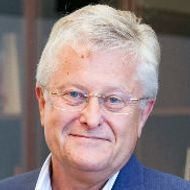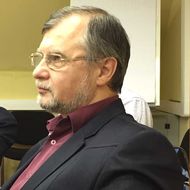At the beginning of September, the American Political Science Associate (APSA) awards ceremony took place in Philadelphia, Pennsylvania. At the ceremony, two awards were given to the work Misperceiving Inequality* by Vladimir Gimpelson and Daniel Treisman for the best research project presented at the 2015 APSA congress. The comparative public policy section gave one award, while the comparative political research section gave out the other.
В старых версиях браузеров сайт может отображаться некорректно. Для оптимальной работы с сайтом рекомендуем воспользоваться современным браузером.
✖
- A
- A
- A
- ABC
- ABC
- ABC
- А
- А
- А
- А
- А
Regular version of the site
ФКН
- HSE University
- Faculties
- Faculty of Social Sciences
- School of Political Science
- News
- Tag "research projects"
3 Krivokolenny Pereulok, Moscow, 103070.
Phones:
8 (495) 772-95-90 *22833,
8 (495) 772-95-90 *22448
Fax: 8 (495) 772-95-90 *12556
Email: politfac@hse.ru
Administration
Book
Washington: Free Russia, 2018.
Article
Petrov N., Hale H. E., Lipman M.
Russian Politics. 2019. Vol. 4. No. 2. P. 168-195.
Book chapter
Arbatli E.
In bk.: Oxford Research Encyclopedia of Politics (Living Edition). Oxford University Press. P. 1-20.
Working paper
Sorokina A., Maximenkova M., Kasamara V.
Political Science. PS. Высшая школа экономики, 2019. No. 71.
Tag "research projects" – News

More than twenty years after the collapse of the socialist bloc, virtually none of the post-communist countries have attained the level of socioeconomic development characteristic of advanced democracies. Likewise, none of the post-communist countries have emerged as successful autocracies with high-quality public institutions, such as those found in Singapore or Oman. Professor Andrei Melville, Dean of the HSE Faculty of Social Sciences, and Mikhail Mironyuk, Associate Professor of the HSE School of Political Science, examine possible reasons why it is so.
September 23, 2015

The book ‘Democracy in a Russian Mirror’ edited by Adam Przeworski was issued by Cambridge University Press in May 2015. Three of the authors — Boris Makarenko, Andrei Melville and Mikhail Ilyin — are staff members of the School of Political Science.
September 02, 2015

Eastern European history shows that in the majority of post-Soviet countries, where lustration was carried out in one form or another, the situation with corruption is now considerably better than in those countries where lustration was not carried out. But what we see in Slovenia is, in fact, an clear deviation from this pattern. Lustration was not carried out in Slovenia. Nonetheless, the country is among the best performers in terms of anti-corruption measures and can be compared with Estonia, where lustration did take place. The Slovenia phenomenon has been analysed in the article ‘Fighting Corruption: The Slovenian Phenomenon’ by Yuliy Nisnevich, Professor at the School of Political Science, Academic Supervisor of the Laboratory for Anti-Corruption and Heather Stetten, independent researcher (USA).
March 30, 2015


March 02, 2015

An article by Andrei Melville, Denis Stukal and Mikhail Mironyuk ‘King of the Mountain’, or Why Postcommunist Autocracies Have Bad Institutions’ was published in the U.S. journal Russian Politics and Law (vol. 52, no. 2, March-April 2014, pp. 7-29).
August 06, 2014
- About
- About
- Key Figures & Facts
- Sustainability at HSE University
- Faculties & Departments
- International Partnerships
- Faculty & Staff
- HSE Buildings
- HSE University for Persons with Disabilities
- Public Enquiries
- Studies
- Admissions
- Programme Catalogue
- Undergraduate
- Graduate
- Exchange Programmes
- Summer Schools
- Semester in Moscow
- Business Internship
- © HSE University 1993–2025 Contacts Copyright Privacy Policy Site Map
- Edit

